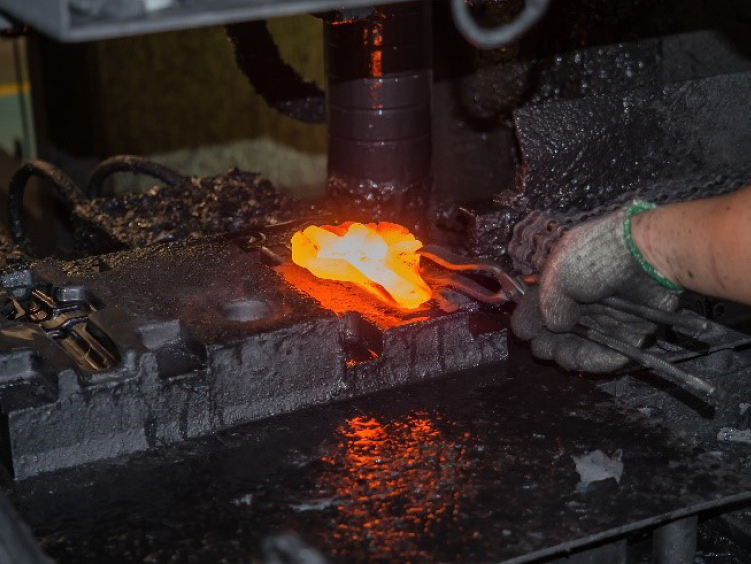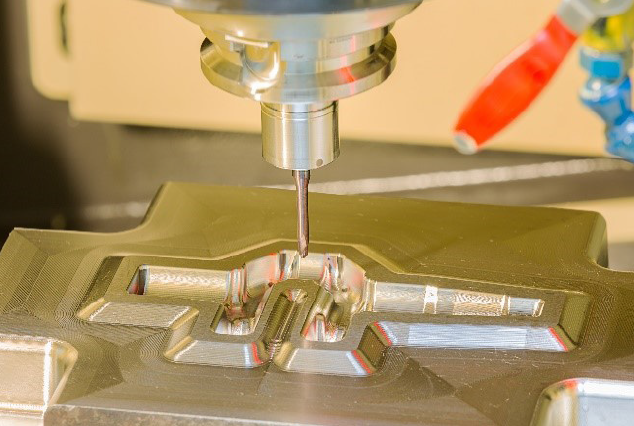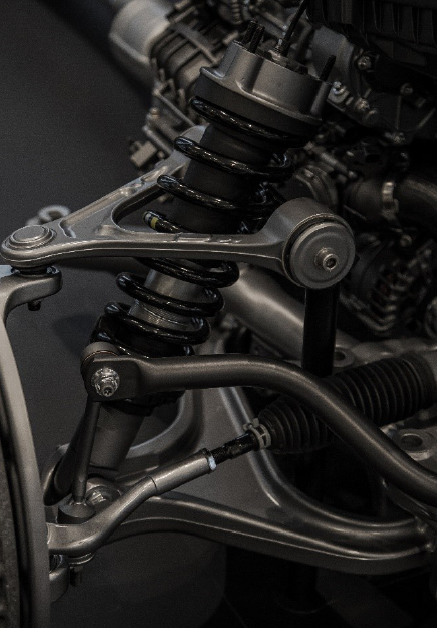CLICK HERE FOR A DOWNLOADABLE VERSION OF THIS ARTICLE
Forging Lubricants Explained - Part 2
Advantages of Graphite-Free Die Lubricants
by Mr. Marius Schmid (Forging Products Specialist, oelheld GmbH) and Dr. Marcel Eberle (R&D, oelheld GmbH)
Lubricants containing graphite are well established in forging but the demand for a clean forge is growing. It is not just about the cleanliness of the forging factory, but also of the equipment, the machines, the environment and, above all, the components. Attention to workers’ health continues to increase, benefiting from a cleaner environment. While there are fewer problems with reactions between the forging surface and graphite in steel forging, aluminum forging with graphite tends to promote surface defects, generally understood as corrosion.
Many aluminum forging operations include secondary operations like acid cleaning or abrasive blasting of the forged components. This can produce waste that is harmful to employees and the environment, leading to higher disposal costs. Additionally, disposal became increasingly difficult in recent years.
The question of whether every forge or forging process can switch to a graphite free lubricant cannot be answered in general terms. Sometimes processes and dies must adapt so that a synthetic product can run smoothly after changing the lubricant. One cannot do this overnight. It often takes time, but it pays off financially and environmentally in the long run.
Graphite-Free Lubricants
Graphite forging application
Graphite-free lubricants are characterized in particular by their good part release, and above all, their lubricating properties. However, graphite-free and graphite-containing products differ in terms of their lubricating properties. Both parties, the lubricant manufacturer and the forging company, have to consider a number of criteria when changing to a graphite-free lubricant:
1. Burr Formation
Burrs are produced in almost all closed-die forging activities with open forging tools. The dimension of the burr is dependent on the design of the tool. There are also burr-free forgings, which are produced in closed forging tools. When switching from graphite lubricants to graphite-free products, it remains essential to keep the burr as small as possible. A large burr puts more strain on the lubricants, therefore requiring additional lubrication. The smaller the burr, the easier process reproduction with graphite free lubricants becomes. This not only results in a cleaner forge, but it also reduces the material costs for a components; requiring less starting material for the final product, and less effort post-forging.
Forging die design is critical to success
2. Optimizing Die Design
Another option in many forges is to consider the casting dies'designs. For the optimal forging process, the material flow, stress on the parts, and lubrication need evaluation and adjustment. This does not mean that a white product cannot withstand increased pressures. However, with complex component parts, the lubricant should not have to produce unnecessary, excess lubrication.
3. Lubricant Application
An advantage of special graphite-free lubricants, is the white release agent layer that remains on the surface of the die. One can then see exactly where the lubricant is applied to the die, and where it still requires additional spray. For more complex components, wetting vertical and steep surfaces of the die sufficiently is vital; with inclined spray nozzles or hand spraying. This promotes buildup on the die surface, particularly in aluminum forging, due to a lack of cooling. This produces defects on forging surfaces. To avoid this, the aluminum buildup on the die surface must be removed at regular intervals, usually with grinding. This leads to forging interruptions, resulting in productivity loss.
Advantages of Graphite-Free Lubricants in Aluminum Forging
Automotive suspension part forged with graphite free lubricant
Aluminum is referred to as a "soft" material in forging. Because of this, when working with black lubricants, graphite particles are pressed into the surface of the aluminum which require removal at an additional expense. The corrosion test can be carried out in a 48-hour salt spray test, according to DIN EN ISO 9227 NSS. Internal case studies investigated graphite-free lubricants based on wax or polymers, and found that these components can promote a protective layer on the surface of the forged parts - thus producing a corrosion-inhibiting effect.
Can a graphite-free lubricant be used for any component? The short answer is no. Components with very long material flows, for example, demand too much for the use of synthetic products. In general, the number of forming steps, the optimized design of the dies, and the forged material need consideration before making an accurate statement. Materials like titanium, nickel, and various special alloys make using white lubricants rather difficult. The hardness of the material and the resulting demands on the lubricant, are quite high. For this reason, we recommend the use of a water graphite.
Conclusion
Changing from graphite-containing to graphite-free lubricants allows for several economic advantages for the majority of forging companies. The lower cleaning costs, the prevention of corrosion of aluminum and the cleanliness of the forge all contribute to this. This article aimed to highlight the advantages of graphite-free lubricants without diminishing the performance of graphite-containing lubricants. Consult with your lubricant supplier to advise you on the conversion from graphite-containing products to graphite-free products, provided your components allow this. Utilize our well-educated and trained team of lubrication expert to outfit your forging company with the most suitable lubricant.
About oelheld GmbH
oelheld GmbH can look back on 130 years of tradition and experience. Since its foundation in 1887 by Carl Christian Held, oelheld GmbH has established itself as a lubricant specialist. Partnership, research, and Human Technology are our core values and are traditions that we are proud of.
We are working closely with numerous machine manufacturers and universities to develop products that are designed to meet the specific requirements of their machines. This kind of cooperation allows us to meet the needs of our customers and adapt our fluids to the different applications.
Our laboratories are equipped with state-of-the-art analysis and testing devices that meet the latest industry standards and help us to satisfy our customer's needs.



